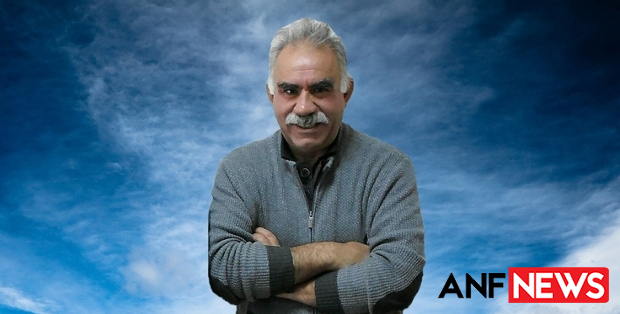
NEWS DESK, ANF ─ On 15 February 1999, Kurdish leader Abdullah Öcalan was captured in Kenya by Turkish special agents acting in connection with CIA and Mossad, while en route from the Greek embassy to Nairobi airport. The capture of Turkey’s “enemy number one” was claimed by the authorities in Ankara as their victory against the Kurds who had been waging a mass uprising against the policies of denial and discrimination; a struggle Öcalan had led since the 1980s. The capture of their leader was regarded by the Kurds as the outcome of an “international conspiracy” involving the security services of several nations including the CIA, MI5 and Mossad.
Öcalan’s capture was followed by a show trial during which Turkish prosecutors sought to portray the Kurdish leader as a “terrorist”. Instead, Öcalan used his defence to articulate the case for peace and reconciliation between Turks and Kurds based on the recognition of Kurds’ cultural and national differences within a unitary state.
For many years Öcalan was held in solitary confinement in hazardous conditions on Imrali island off the coast of Istanbul. His health condition was said to be deteriorating because of the harsh environment of the prison. But despite all his personal difficulties, Öcalan has continued to play a central role in Turkey’s politics and exerts an influence among the Kurdish movement that cannot be ignored. He has advocated a negotiated settlement by putting forward detailed proposals calling on both sides to take steps to bring about a permanent end to the conflict. He has used his stature among the Kurds to urge repeated unilateral ceasefires on Kurdish guerrillas to give peace a chance which they have repeatedly adopted in the face of continued aggression by the Turkish military.
Insisting that he is a political prisoner, Öcalan and the Kurdish national movement have maintained a consistent stand for a peaceful conclusion to the conflict based on the achievement of justice for the Kurdish people. Through continuous discussions their proposals have evolved into the current demand for “democratic autonomy” inside Turkey, a policy which envisages the granting of local decision-making powers in the regions through social and cultural rights such as the use of the Kurdish language and mother tongue education, thus fulfilling longstanding key Kurdish demands.
What is clear is that Turkey, since Öcalan’s detention has failed to achieve the elimination of the Kurdish movement, just as it has failed in its insistence on seeing Abdullah Öcalan as a criminal or terrorist. Talks between Öcalan and representatives of the Turkish state underlined the gradual realisation on the Turkish side that Öcalan’s influence remains crucial to achieving an end to this protracted conflict.
FIRAT NEWS AGENCY ─ ANF